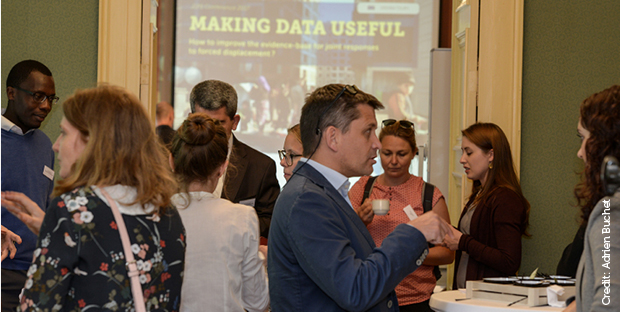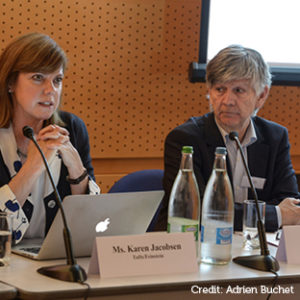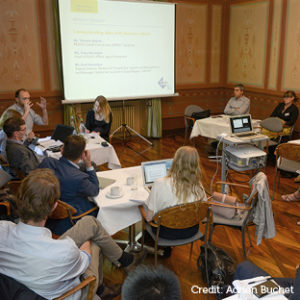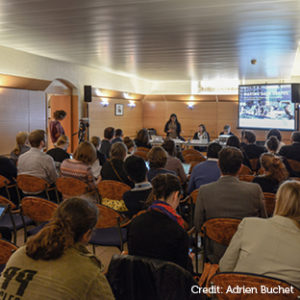JIPS held its second international conference. During the one and a half days, more than 60 speakers and participants from a wide range of backgrounds came together to share their expertise and jointly elaborate a set of concrete recommendations on how to improve the evidence-base for joint responses to forced displacement. The outcomes will feed into a conference report, to be published shortly, as well as inform JIPS’ strategy 2018-2020.





 Opening the conference with a joint keynote address, Prof. Walter Kälin* and Prof. Karen Jacobsen** both emphasised the centrality of data and analysis as “the point of departure for effective responses to displacement”.
Opening the conference with a joint keynote address, Prof. Walter Kälin* and Prof. Karen Jacobsen** both emphasised the centrality of data and analysis as “the point of departure for effective responses to displacement”.
Building off recent progress at the policy level, Prof. Kälin linked the event to the New Way of Working, highlighting the value of profiling and jointly developed evidence-based priorities to help achieve collective outcomes in protracted situations of internal displacement. Prof. Jacobsen furthermore encouraged a more critical thinking: “If the data we collect is weak – due to biases such as incoherent translation, non-representative sampling, lack of verification – then the knowledge we create from it is also weak.” The localisation agenda, she urged, should be at the forefront of our efforts to improve data quality and use.
Offering a dynamic environment, the event brought together a wealth of perspectives from both data producers and data users, including from government counterparts, national statistical offices, humanitarian and development agencies, as well as academia and actors from the private sector.
Through a series of six breakout sessions as well as three plenary sessions, experts and participants explored together a broad spectrum of issues, looking at questions such as: How can choosing the right methodology help us produce more useful data? How can investing in local capacity ensure better data use? What makes a bigger difference on the ground – consensus or accuracy? What is the perspective of Governments on the question of useful data for national response? And more.




As Natalia Baal highlighted in the closing plenary, this was an event about the real issues – perhaps the ‘quieter issues’ – that determine whether or not data will be effectively used. “Of the numerous recommendations that came out of the different discussions, four cross-cutting themes clearly emerged:
At JIPS we are currently working on consolidating the discussion points and key recommendations identified into a comprehensive conference report to be shared widely. Our special thanks go to all our partners who helped bring this event together – donors, Executive Committee, and peers – as well as to individual speakers who helped to make the event a success.
* Prof. Walter Kälin focuses on international human rights law with an emphasis on internally displaced persons and refugees. He acted as Special Rapporteur on the Human Rights of IDPs from 2004 till 2010, and was a former envoy of the chairmanship of the Nansen Initiative as well as member of the U.N. Human Rights Committee. He currently is a professor emeritus of constitutional and international law at the Faculty of Law of the University of Bern, and member of JIPS’ Advisory Group.
** Prof. Karen Jacobsen is the Henry J. Leir Professor of Global Migration at the Fletcher School and the Friedman School of Nutrition,and directs the Refugees and Forced Migration Program at the Feinstein International Centre. Her current research explores urban displacement and global migration systems, with a focus on the livelihoods and financial resilience. She was coordinator of JIPS from 2013-14 and is a member of JIPS’ Advisory Group.